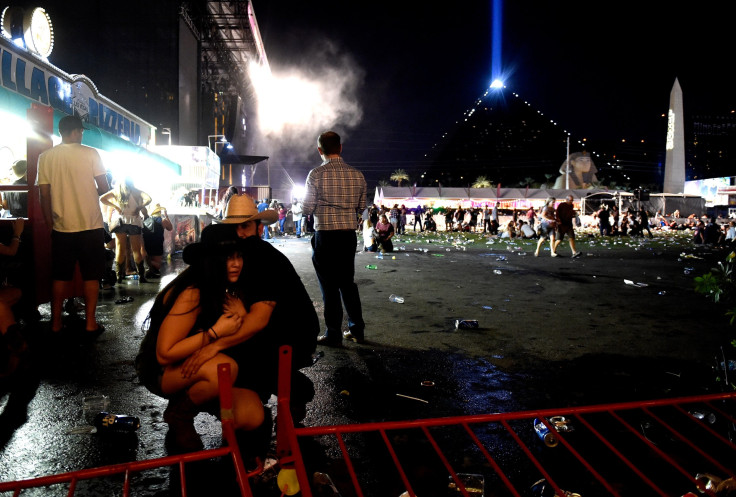Will Las Vegas Shooting Break The ‘Trump Effect’ On Gun Stocks?
While Donald Trump has been a friend to gun owners, his administration has a more complicated relationship with gun makers, who have watched their stock values fall since he took office. But in the hours following a mass shooting in Las Vegas that killed at least 58 people and sent more than 500 to local hospitals, the “Trump effect” on gun stocks seemed to have been broken. Monday morning, gun stocks heated up in response to the worst mass shooting in modern U.S. history.
Shares of Sturm, Ruger & Company (RGR), America’s largest firearm manufacturer, were up four and a half percent in early trading on Monday. Shares of American Outdoor Brands (AOBC), the owner of Smith & Wesson, were up five percent. However, by the end of the business day on Monday, the stocks had fallen from their morning highs: Sturm shares were up three and a half percent on the day, while American Outdoor shares were just a .25 percent above their opening price.
Shares of those two companies t were mostly flat for the first nine months of the year despite a bull run in the larger stock market and large gains under the administration of Barack Obama. Gun sales typically rise when gun owners believe that new regulations might limit their ability to purchase firearms, which was a fear many shared under Obama, a fear stoked by groups like the NRA, which spent $15 million on ads attacking Obama during the 2012 election cycle.

“Mr. Obama is the best gun salesman on the planet,” money manager Louis Navellier, chairman of the Reno, Nevada investment firm Navellier & Associates , told CNBC in January 2016. Trump is no such gun salesman. Background checks related to firearms purchases have tumbled under Trump. In April, he became the first sitting president since Ronald Reagan to speak at the National Rifle Association's annual leadership forum and told the group, which endorsed him during last year’s presidential run, it has “a true friend and champion in the White House.” With no threat of a regulatory crackdown, it would seem gun owners don’t feel the need to add to their stockpiles.
Fears of regulatory restrictions are greatest after a mass shooting, when calls for greater gun control are typically loudest. Those fears can spook investors as well as gun owners: In the immediate aftermath of the 2012 mass shooting at Sandy Hook elementary in Newtown, Connecticut, gun stocks actually plummeted. But then, as guns were purchased in fear of a regulatory crackdown, gun stocks begin to heat up. As it became clear no major legislative response was going to follow the shooting, gun stocks continued to soar. A year later, people who bought stocks in the two largest gun manufacturers after Sandy Hook were sitting on profits of between 60 to 80 percent.
In the years since Sandy Hook, investors no longer fear mass shootings will provoke a government response. After a massacre at the Pulse nightclub in Orlando last year, which was the worst mass shooting in U.S. history until Sunday, stocks immediately rose between eight and 10 percent. On Monday, stocks soared even though the prospect of a government response under a Republican controlled Congress and White House seemed unlikely. Investors may be betting on a fear that, under Trump, no longer exists.
Update: 6:20 p.m. EST - This story was updated to include share prices at the close of U.S. stock markets.
© Copyright IBTimes 2025. All rights reserved.






















